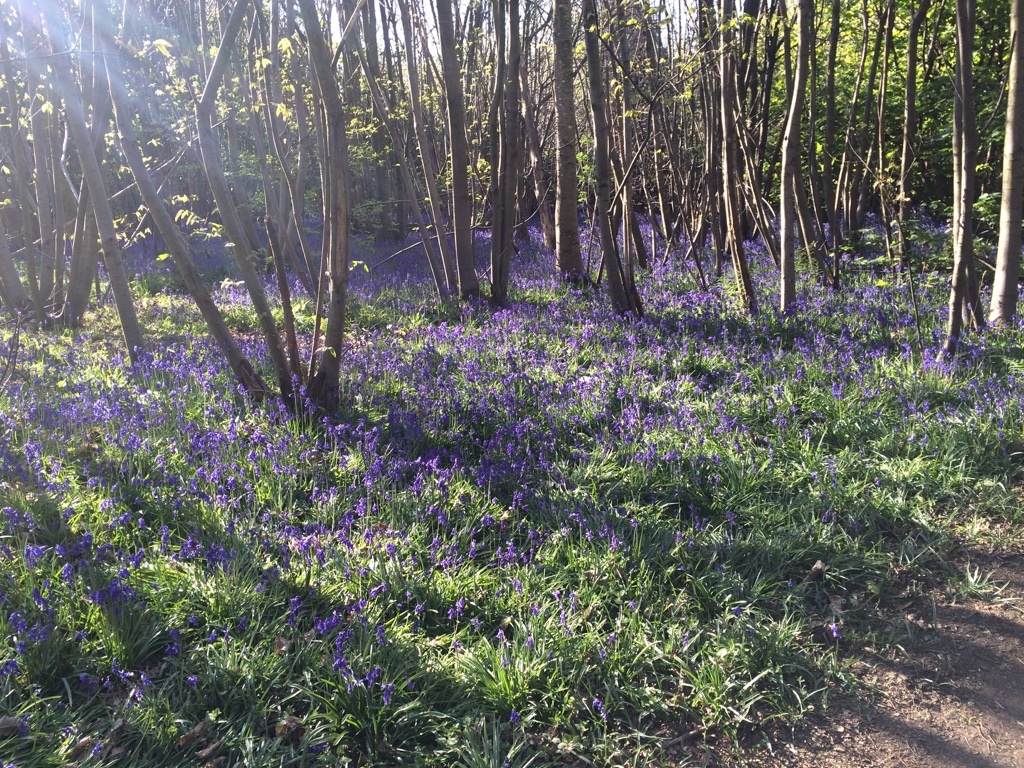Happy Places
Back in 2013 I visited NYC to attend the wonderful Brooklyn Beta conference. It was Autumn. There was a slight nip in the air, the leaves were turning, and the weather was amazing.
During one of our non-conference exploratory days we strolled through Central Park. We meandered through some of the touristy bits, and at one point found ourselves in an area where it was more forest than park. Surrounded by huge conifers, the wind picking up and pinecones and pine needles crunching under foot, I reached up and grabbed a handful of needles off the tree. I crushed them in my hand, breathed in, and was instantly transported back to my childhood. I'll never forget the sense of calm and happiness that flooded over me. I kind of forgot up to that point that nature is my happy place.
That NYC memory has stuck with me. Growing up in Canada I took for granted the beautiful, open expanse I had all around me. I grew up in the suburbs, which meant I had rugged nature virtually on my doorstep. What's more, as a child I pored over every type of zoology textbook, bird manual, visual encyclopaedia and the like that I could get my hands on. I watched every 'Hinterland who's who' I could. I obsessed over Cousteau's documentaries, and catching anything Attenborough seemed like a luxury. Nature was and is my thing.
Today
Today I find myself in the suburbs again, but in a different country, as a dad, and with a family of my own. Nestled between the English Channel and the South Downs, I'm lucky enough to have nature on my doorstep again. Perhaps it's not as rugged and large as a Canadian boreal forest, but it's sure better than nothing.
All of this came to light recently, as I listened to a new podcast that resonated with me more than most. The 2nd episode of hurryslowly.co is simply fascinating. Florence Williams, a contributing editor to Outside magazine and author of the book The Nature Fix discusses our deep-rooted connection with nature, and how people in urban spaces are detrimentally affected by their lack of connection to the natural world. Florence gives ample evidence - via scientific studies - that support the power of being outside.
An example: children who lived closer to nature (forests rather than parks) were shown to have more micro bacteria on their skin than their peers living in cities and urbanised areas. That micro bacteria correlated to less cases of asthma, skin diseases and fewer colds. Being outside is good for you.
My happy place
It's no surprise that my happiest place in recent years is out in the South Downs National Park.
In my mind's eye it's late Spring and early morning. I'm mountain biking through a sun-dappled forest stand near Brighton's city centre. Blue bells are making their beautiful, annual bloom and parts of the forest floor are covered in a sea of blue. There are no human sounds, just birds singing and twigs crunching under tyre.

As someone who works behind a screen all day, being outside, in and amongst nature, is absolutely critical in maintaining a healthy work-life balance. As Florence suggests, it's these moments - when you're outside and completely absorbed in your environment - that your frontal cortex finally takes a break.
You should try it sometime. You won't be disappointed.
October 19th, 2017